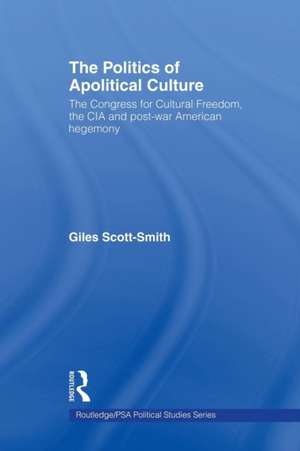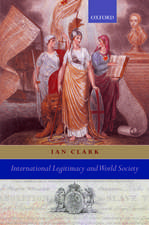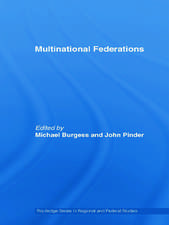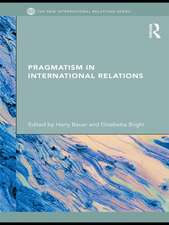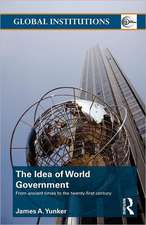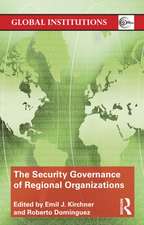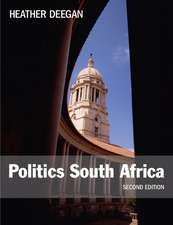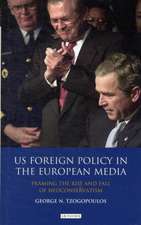The Politics of Apolitical Culture: The Congress for Cultural Freedom and the Political Economy of American Hegemony 1945-1955: Routledge/PSA Political Studies Series
Autor Giles Scott-Smithen Limba Engleză Paperback – 3 mar 2016
By examining the formation of the Congress and its early years of existence in relation to broader issues of US-European relations, Giles Scott-Smith reveals a more complex interpretation of the story. The Politics of Apolitical Culture provides an in-depth picture of the various links between the political, economic and cultural realms which led to the Congress.
| Toate formatele și edițiile | Preț | Express |
|---|---|---|
| Paperback (1) | 481.07 lei 6-8 săpt. | |
| Taylor & Francis – 3 mar 2016 | 481.07 lei 6-8 săpt. | |
| Hardback (1) | 1201.87 lei 6-8 săpt. | |
| Taylor & Francis – 22 noi 2001 | 1201.87 lei 6-8 săpt. |
Preț: 481.07 lei
Nou
Puncte Express: 722
Preț estimativ în valută:
92.11€ • 95.91$ • 76.42£
92.11€ • 95.91$ • 76.42£
Carte tipărită la comandă
Livrare economică 14-28 februarie
Preluare comenzi: 021 569.72.76
Specificații
ISBN-13: 9781138670464
ISBN-10: 1138670464
Pagini: 248
Dimensiuni: 156 x 234 x 13 mm
Greutate: 0.45 kg
Ediția:1
Editura: Taylor & Francis
Colecția Routledge
Seria Routledge/PSA Political Studies Series
Locul publicării:Oxford, United Kingdom
ISBN-10: 1138670464
Pagini: 248
Dimensiuni: 156 x 234 x 13 mm
Greutate: 0.45 kg
Ediția:1
Editura: Taylor & Francis
Colecția Routledge
Seria Routledge/PSA Political Studies Series
Locul publicării:Oxford, United Kingdom
Cuprins
Chapter 1 Introduction; Chapter 2 Intellectuals and hegemony; Chapter 3 The political economy of US hegemony 1945–50; Chapter 4 Securing the Pax Americana; Chapter 5 The formation of the Congress for Cultural Freedom; Chapter 6 The search for consensus 1950–2; Chapter 7 The end of ideology and ‘The Future of Freedom’; Chapter 8 Conclusion;
Notă biografică
Michael Moran, Giles Scott-Smith University of Manchester
Descriere
This book analyses a key episode in the cultural Cold War - the formation of the Congress for Cultural Freedom. This study combines archival research, cultural history and the theory of Gramscian political economy.
